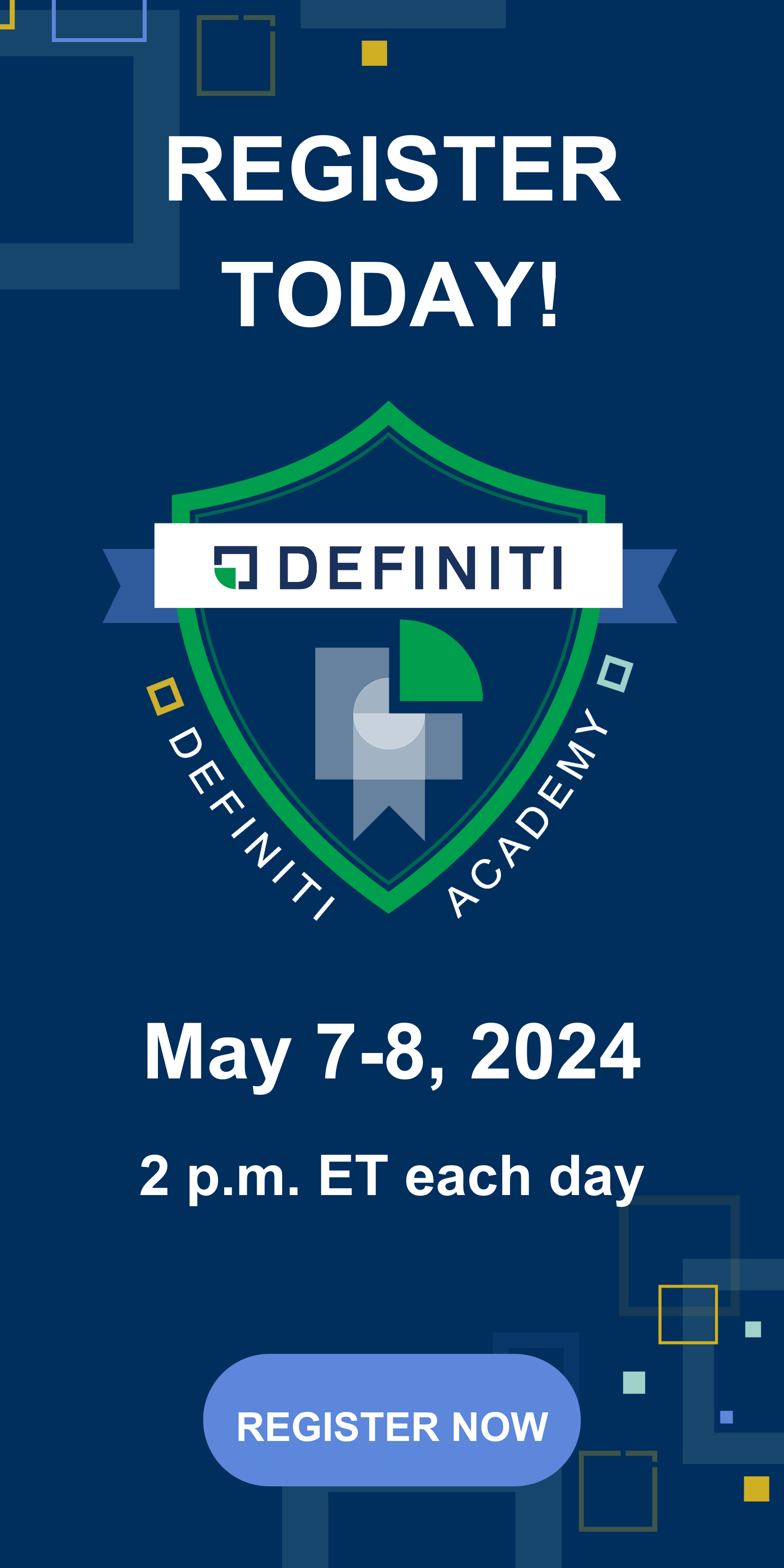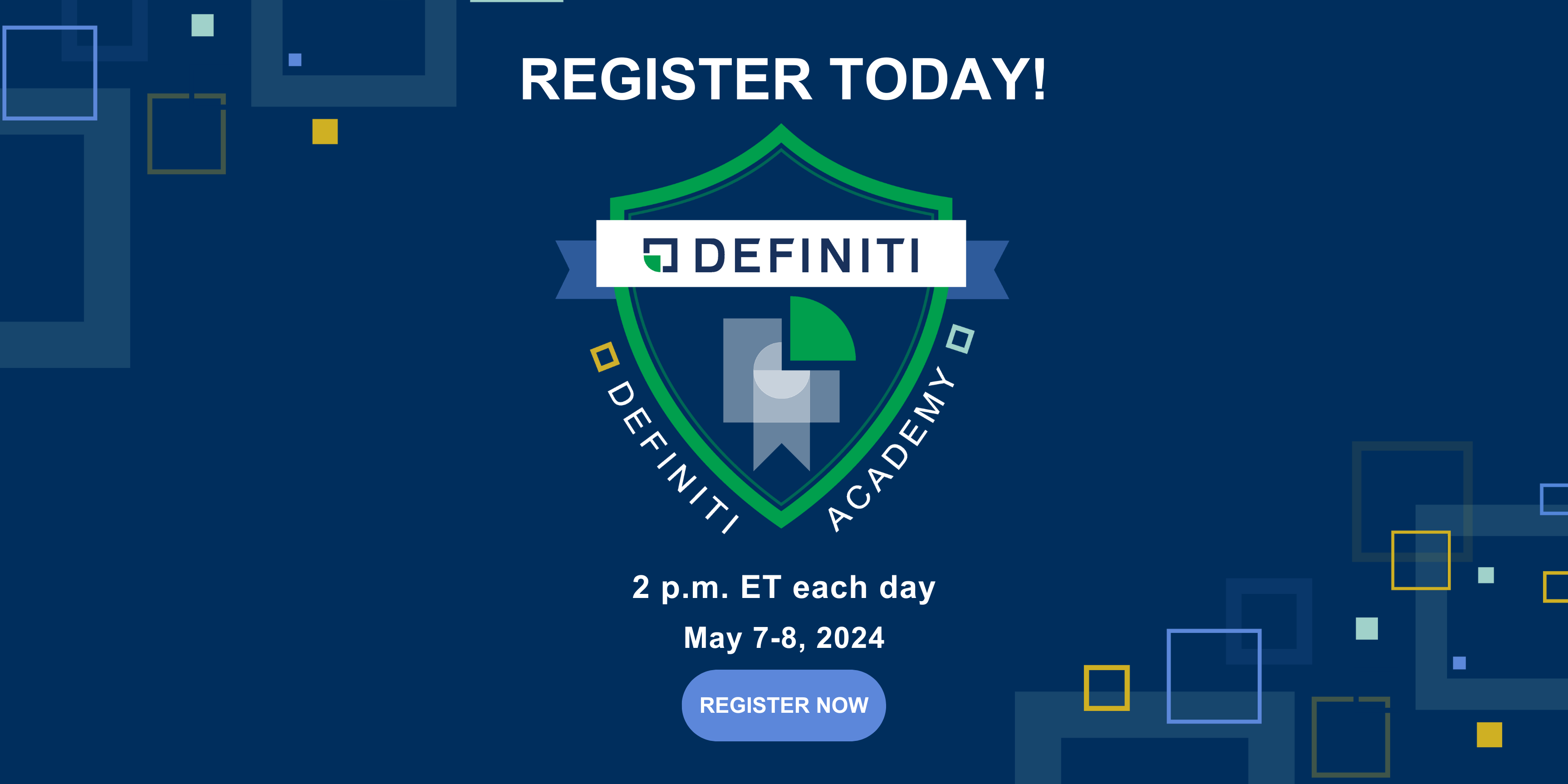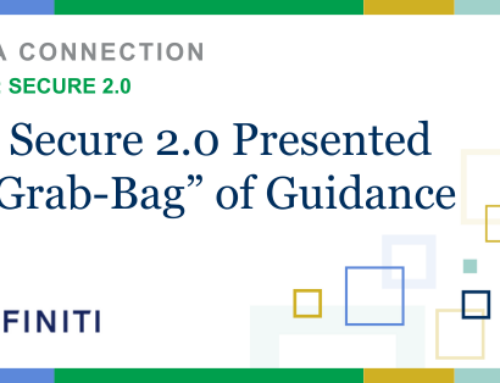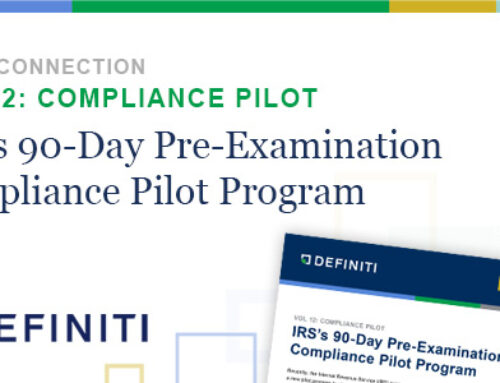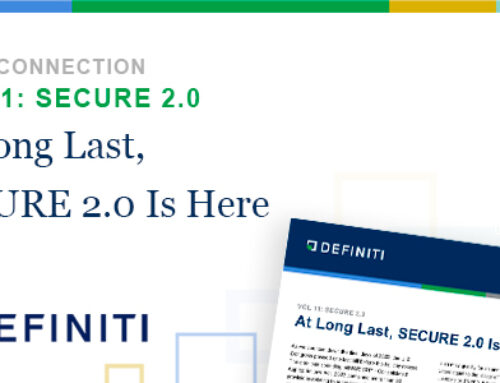VOL 13: Matching Contributions and Private Equity
Student Loan Matching Contributions and Private Equity Investments
This edition covers two topics of interest to retirement plan sponsors and financial advisors.
For more information on SECURE 2.0’s impact on retirement plans, refer to ERISA Connection Volume 11, published in January 2023.
Student Loan Matching Contributions Under SECURE 2.0
Student loan repayment obligations can make it difficult for employees to contribute to their employer’s 401(k) plan. Employees who don’t contribute to their retirement plan miss more than the opportunity to save for retirement — they also miss their employers’ matching contributions.
Employers who have been searching for a solution to this problem enthusiastically greeted Internal Revenue Service (IRS) guidance which approved a solution for one particular 401(k) plan, only to be disappointed the guidance offered a solution that was difficult for other employers to utilize and posed additional compliance obstacles for safe harbor plans.
Fortunately, SECURE 2.0 offers a solution available to all employers, even those sponsoring safe harbor plans. In crafting the provision, Congress also offered employers some simple ways to administer a student loan, making it easier for employers to choose to implement such a provision.
If you are considering offering your retirement plan participants the chance to receive matching contributions on their qualifying student loan payments (SECURE 2.0 made this provision optional — not mandatory — for employers), consider the following:
- Student loan payments eligible for matching contributions. Student loan payments that meet the requirements to be Qualified Student Loan Payments (QSLP) may be matched under the new provision. A QSLP is an employee’s repayment of a “qualified education loan” for the higher education expenses of the employee, the employee’s spouse or an individual who was the employee’s dependent when the debt arose.
- No documentation, but certification. The employer student loan matching arrangement that was the subject of IRS guidance issued before SECURE 2.0 required participants to provide documentation evidencing the type and amount of student loan payments they had made during the year. Because this documentation would likely also contain personal financial information, the employer hired an outside third party to review employee documentation and provide only the information necessary for plan administrative purposes to the plan sponsor. Many smaller and mid-size companies found this potential extra expense undesirable.SECURE 2.0 makes hiring a third party to verify employee student loan payments unnecessary. Instead, SECURE 2.0 allows employers to rely on the employee’s annual written certification without substantiation. However, the statute directs the IRS to issue regulations allowing employers to establish reasonable procedures for employees to claim the QSLP match. Those regulations could allow employers to require substantiating documentation.
-
Employees have extended time to claim QSLP match. SECURE 2.0 requires employers to provide employees with at least three months after the close of a plan year to claim a QSLP match. This requirement effectively restricts employers to making the QSLP match on an annual basis, even if the plan’s regular match is made more frequently, such as on a payroll period or quarterly basis.
This provision of SECURE 2.0 becomes effective for plan years beginning after December 31, 2023.
Private Equity in 401(k) Plans — What’s All the Fuss?
With financial publications’ ever-changing headlines, it can be hard for retirement plan fiduciaries to determine whether they should consider private equity as a potential investment option under their company’s 401(k) plan.
In this section of the ERISA Connection, we’ll guide you through the current state of Department of Labor (DOL) guidance on the subject.
On June 30, 2020, the DOL published an “Information Letter” (a non-binding statement) that addressed private equity investments as a component of a professionally managed asset allocation fund offered as an investment option for participants in 401(k) plans.
The DOL concluded that a plan fiduciary could, consistent with their obligations under ERISA, select such an investment, providing a list of factors the fiduciary must consider.
Some of the factors were:
- Whether the characteristics of the fund align with the plan’s characteristics and needs of the plan participants, taking into account (among other things) the fund’s investment allocation and strategy, fees and other expenses, and the nature and duration of any liquidity restrictions, a participant’s ability to access funds (e.g., loans) and ability to change investment selections on a potentially frequent basis.
- Whether plan participants will be furnished adequate information regarding the character and risks of the fund to be able to make an informed assessment regarding making or continuing an investment in the fund.
- Whether the fiduciary has the skill, knowledge and experience to make these determinations.
The following year, in 2021, the DOL revisited the issue in a Supplemental Statement to the Information Letter, which is widely considered a step back from the opinion it first expressed in the Information Letter. In the Supplemental Statement, the DOL cited questions and reactions from a range of stakeholders regarding the Information Letter and a recent Risk Alert issued by the Securities and Exchange Commission (SEC), which highlighted compliance issues in examinations of registered investment advisers that manage private equity or hedge funds.
After carefully considering the stakeholder input and the implications of the SEC Risk Alert, the DOL concluded that it should supplement the Information Letter to “ensure that plan fiduciaries do not expose plan participants and beneficiaries to unwarranted risks by misreading the Information Letter as saying that [private equity] — as a component of a designated investment alternative — is generally appropriate for a typical 401(k) plan.”
The DOL cautioned that the previous Information Letter should be limited to fiduciaries that have experience evaluating private equity investments in a defined benefit pension plan who are also qualified to analyze these investments for a participant-directed individual account plan, particularly with the assistance of a qualified fiduciary investment adviser, saying, “Except in this minority of situations, plan-level fiduciaries of small, individual account plans are not likely suited to evaluate the use of [private equity] investments in designated investment alternatives in individual account plans.”
Given this seeming step backward by the DOL, plan fiduciaries should not consider offering private equity investments in their company’s 401(k) plan without the guidance of an experienced ERISA attorney and an investment advisor who has a significant level of expertise in private equity and the specific needs of 401(k) plan participants.
It is important to note that in its Information Letter, the DOL was evaluating the use of private equity as a very small piece of a larger investment option — for example, a professionally managed target date fund — and not as a stand-alone investment option on the plan’s investment menu.
We’re Here to Help
Have questions for Definiti about this edition of the ERISA Connection or SECURE 2.0’s impact on retirement plans? Contact your RPC, call 1 (888) 912-3653 or email sales@definiti.com.
